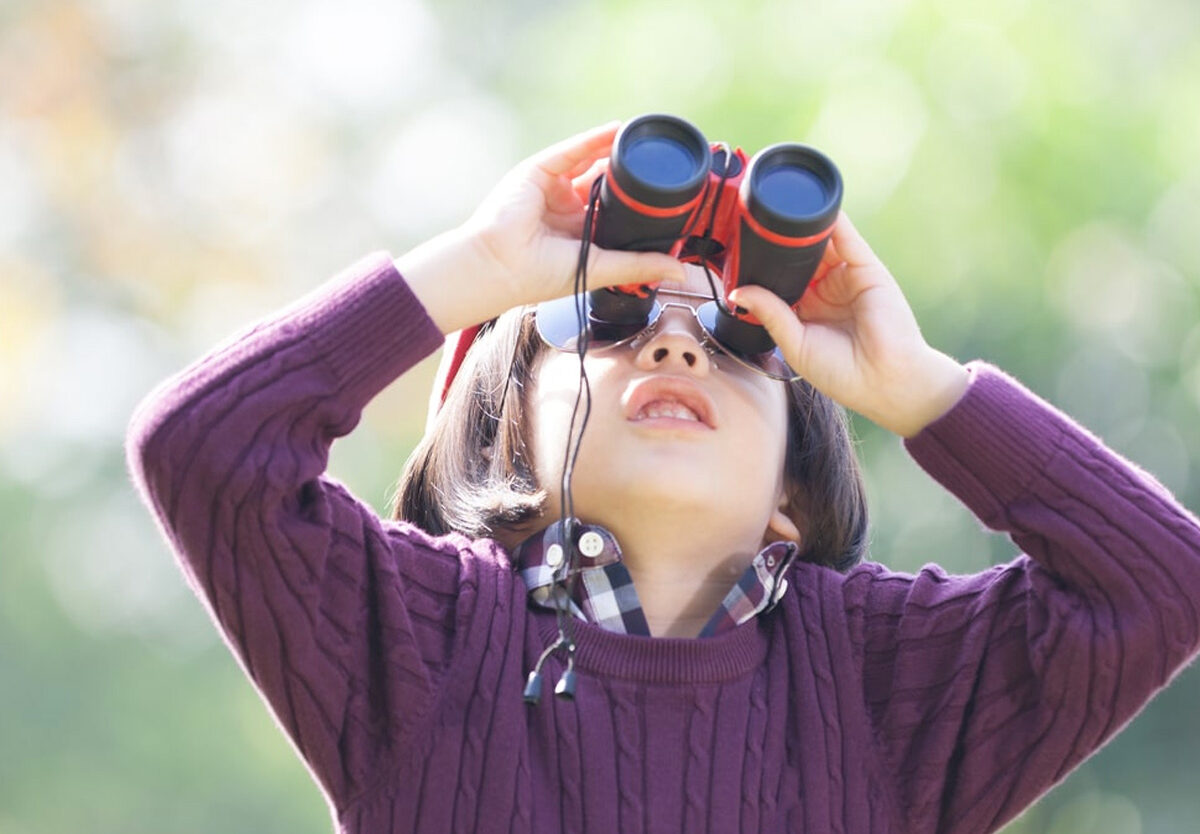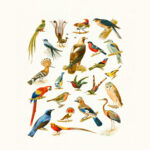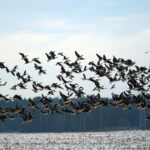If you love birds and wildlife, the Big Schools’ Birdwatch is a great way to encourage the next generation of birders and support important research. Each participating group or class takes an hour to explore their surroundings, identify local birds, and collect data for the RSPB — Royal Society for the Protection of Birds. Using resources provided by the RSPB, educators can choose a time to take their class outdoors and spend an hour counting the birds they see. As the world’s biggest birdwatch, Big Schools’ Birdwatch encourages children to appreciate their local nature, spend time outdoors, and develop their interest in wildlife.
History of Big Schools Birdwatch
Since 1979, children across the U.K. have participated in Big Schools’ Birdwatch — a nationwide effort to identify and count local birds, conducted simultaneously with the Big Garden Birdwatch. The event grew out of a research project when scientists wanted to use the help of citizens to identify common garden birds. Sponsored by the Royal Society for the Protection of Birds, this annual event brings together children and educators across the U.K. in a celebration of local wildlife and nature. Pupils fill bird feeders to attract birds to their classroom and monitor the number and species of birds that show up in a given hour. In 2019, around 60,000 children and educators took part in the event, counting over 100,000 birds.
The Royal Society for the Protection of Birds was founded by Emily Williamson in 1889. Horrified by the trade of bird feathers for women’s hats, Williamson and her associates advocated for the protection of birds and the eradication of feathers as decoration. The Society gained support from influential people including the country’s top ornithologist at the time. In 1921, with the society’s advocacy, the British Parliament passed the ‘Importation of Plumage Prohibition Act,’ criminalizing the importation of feathers.
Today, the society continues to promote responsible land management and conservation, species recovery, and educational initiatives that make a real impact in the conservation and restoration of British habitats and species.
In addition to engaging kids in birdwatching, the project helps the RSPB understand how bird numbers change each year, helping them monitor the condition of various species and plan future conservation efforts.
Big Schools Birdwatch timeline
The Royal Society for the Protection of Birds starts as a small organization founded by Emily Williamson to advocate for reducing the use of plumage in clothing and hats.
The bill is introduced, and would eventually pass in 1921.
The RSPB first asks the public to help them count birds, involving everyday citizens in the science of conservation.
The Big Garden Birdwatch becomes the largest bird survey ever undertaken, with 29,000 participants.
Big Schools Birdwatch FAQs
Why are birds important?
Birds are not only beautiful and fascinating, but their populations also serve as a signal of general environmental health and can forecast the fate of other species around them. Understanding birds and their behaviors can help scientists plan conservation efforts for entire ecosystems.
What is the rarest bird in the U.K.?
The hawfinch, Britain’s largest finch, has a powerful beak that can split open cherry pits. Today, its population has declined in many parts of Britain, and can primarily be found mostly in the canopy of mature woodlands.
How do I learn more about birdwatching?
There are plenty of resources for birdwatchers. Whether you’ve been birding for years or are just becoming interested in the hobby, you’ll find a wealth of information and helpful people to guide you in your journey. Look for local birdwatching groups that host field trips, birding classes, and educational workshops to get started.
How to Celebrate Big Schools Birdwatch
Participate!
If you’re in the U.K., download the RSPB’s birdwatch resources and conduct your own one-hour birdwatch in your backyard or local park.
Learn about your local birds
If you don’t live in Britain, check the Audubon Foundation’s website or find your local birding group to get information about local birds and how to spot them.
Support conservation efforts
To get more involved, donate some time or money to an organization that supports bird conservation efforts in your own country or internationally.
5 Interesting Facts About Big Schools’ Birdwatch
Starlings can mimic many sounds
Starlings, the small birds that fly in dramatic, cloud-like formations, can mimic the sounds of other birds, animals, and even car alarms.
Hundreds of species
Although small in area, the British Isles are home to over 600 species of birds.
Birds, their nests, and their eggs are legally protected
Birds, their nests. and their eggs are protected by law under the Wildlife and Countryside Act.
Migrating swallows fly over 200 miles a day
During migration, swallows can cover over 200 miles each day, flying at speeds of up to 35 miles per hour.
Here comes the sun
Britain's most common bird, the blackbird, can often be seen lying on the ground with its wings spread, soaking up the sun.
Why We Love Big Schools’ Birdwatch
It emphasizes the importance of local wildlife
When we think of wildlife conservation, we often forget our backyards. But the birds and animals in our home gardens need protection too. Observing the wildlife close to our home can remind us that nature is all around us.
It encourages kids to appreciate nature
The Big Schools’ Birdwatch inspires young people to observe their local birds, learn about British wildlife, and appreciate nature.
It combines public outreach and research
By letting citizen scientists contribute their observations, the RSPB is increasing public knowledge and appreciation for birding and conservation as well as collecting valuable data that can inform public policy and advocacy.




